Sixty Member States recognized the need to address complex contemporary challenges but differed on the priority among measures to achieve international peace and security.
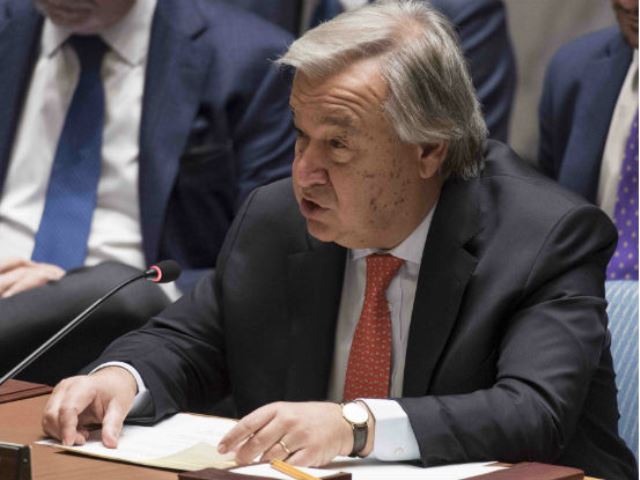
The following is an informal excerpt of an unofficial record of the Security Council’s Open debate on the international peace and security.
Secretary-General António Guterres emphasized prevention must be at the center of all efforts in new integrated approaches, and development was the best instrument of prevention. The 2030 Agenda for Sustainable Development would build peaceful societies while respect for human rights and social cohesion were a key for a peaceful society. Women`s participation was essential for conflict prevention, peacemaking and sustaining peace while sexual violence must be prevented and justice pursued for perpetrators. He reiterated the importance of prevention that included preventive diplomacy supported by the High-level Advisory Board on Mediation. The concept of human security presented a useful frame of reference as it was people-centered and holistic and emphasized the need to act early and prioritize the most vulnerable. He proposed to expand the Council`s toolbox, increase resources for prevention, and be more systematic in avoiding conflict and sustaining peace. Finally, he called for unity in the 15‑member Security Council, without which the parties to conflict might take inflexible and intransigent positions.
Ambassador Koro Bessho, Japan’s representative, Council President for December, spoke in his national capacity, noting that in the 25 years since the end of the Cold War, there had been a rise in complex contemporary challenges to international peace and security. They included the proliferation of weapons of mass destruction, the expansion of terrorism, and non‑traditional challenges such as non‑State actors and inter‑State criminal organizations. While the Council had been tackling those challenges, in most cases through a country or region‑specific context, Ambassador Bessho stressed that a human security approach was highly relevant when addressing complex contemporary challenges to international peace and security. Such an approach placed the individual at the center, based on a cross‑sectoral understanding of insecurities. The human security concept also entailed a broadened understanding of threats and challenges.
In the ensuing debate, speakers emphasized the need to adjust to the changing challenges to international peace and security and welcomed the Secretary General’s reform of the Organization’s security pillar and other initiatives. Many stressed the need to address root causes of instability and conflict, including climate change, non‑State armed groups, extremism and terrorism, as well as poverty and underdevelopment.
Calling for creativity in the Council’s efforts, they underlined the importance of prevention, and stressed the responsibility of the 15‑member organ to address threats to international peace and security at an early stage. Delegations also called for strengthen cooperation and coordination with other United Nations bodies and with regional and subregional organizations. Ending impunity for serious international crimes was equally crucial, with some delegates stressing the importance of effective cooperation with the International Criminal Court.
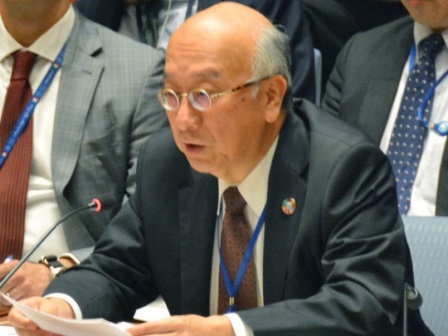
Many Member States representatives welcomed the S-G`s reform of the security pillar and other initiatives, stressed the need to address root causes of instability and conflict, including climate change, non-State armed groups, extremism and terrorism, as well as poverty and underdevelopment. They underlined the importance of prevention and called upon the Council members to address threats at an early stage and called for strengthening cooperation with other UN bodies and regional organizations.
Ambassador Olof Skoog of Sweden, reflecting the views shared by the European Union and the Nordic countries, said that international peace and security was increasingly hampered by the negative impacts of multidimensional poverty, climate change, transnational organized crime, food insecurity, weak governance, human rights violations and growing inequality. The Council’s preventive role was now more important than ever before. However, prevention was not possible without a comprehensive and holistic strategy to address the root causes and the conflict amplifiers. While ongoing reform efforts would better position the United Nations system to enhance its joint analysis and integrated strategic planning capacities, it was also crucial to consistently integrate a gender perspective into long‑terms strategies.
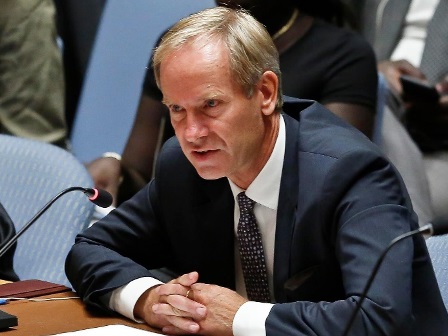
Ambassador Michele J. Sison of the United States was supportive of the UN peacekeeping operations. She said the Council had a responsibility to respond to crises too large for one nation to deal with. One of the Council’s most effective tools was peacekeeping operations which proved a powerful mechanism for sustaining peace and security. She noted that the United Nations deployed over 100,000 troops and police all over the world. The missions, however, must adapt to the reality of the situation on the ground. The quality of troops deployed should also be analyzed. Giving examples of successful peacebuilding, including in Liberia, where the United Nations had devised a peacebuilding plan in coordination with the Government and participation of civil society, she said the Council had mostly established missions only after conflict had broken out. There was a need to look at underlying challenges, such as failure to develop or lack of protection of human rights, as they could directly lead to instability. In Yemen, 22 million out of 29 million were in need of humanitarian assistance and there was a risk of famine. Famine conditions had been caused by conflict and parties more interested in personal gain. The United Nations had the power to develop solutions to transnational problems, she said, encouraging the Secretary‑General to raise issues early on to the Council.
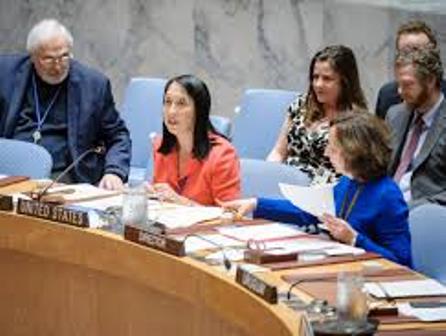
SHEN BO (China) said that, in the desire for peace and development, it was necessary to firmly uphold the principles of the United Nations Charter. Although new challenges kept emerging, the Charter’s principles remained valid. Maintaining peace and security was the primary responsibility of the Council and its authority should be defended by all Member States. The United Nations and the Council should be subjective and impartial. The 15‑member organ must also respect sovereignty, territorial integrity and independence of States and their right to choose their own social structures. Noting that root causes of conflict such as poverty and under‑development had not been solved and that threats such as climate change were constantly expanding, he urged for the full implementation of the 2030 Agenda and the Paris Agreement. The major organs of the United Nations should follow the provisions of the Charter and stick to their mandates while coordinating their efforts.
TEKEDA ALEMU (Ethiopia) said that a new way of thinking, along with innovative tools, were needed to meet emerging, complex challenges in international peace and security through a comprehensive and holistic approach. Strengthened partnerships were needed between United Nations bodies and regional organizations for that purpose. The Secretary‑General’s vision could allow the creation of integrated capabilities with improved planning and budgeting to support operations on the ground and longer‑term efforts. While a cross‑pillar approach was critical to address driving factors of conflicts that did not mean that the mandates of existing operations should be changed. The Security Council should not impinge on the responsibilities of other bodies. The Council had many responsibilities of its own to deal with, for example, principles of international law governing inter‑State relations, which were not at this point being adequately addressed.
PETR V. ILIICHEV (Russian Federation) stressed that a context‑specific approach must be highlighted, with all the particularities taken into account, and an over‑broad use of Chapter VII, as well as outside intervention, be avoided. In that context, he rejected the blasphemous statement by the representative of Ukraine in relationship to international law, given that that representative’s Government had come into power illegitimately. He called for full implementation of the Minsk agreements. Factors, such as foreign intervention and economic compulsion, must be added to the list of drivers of current conflict that were being discussed. In terms of an integrated strategy to international peace and security, it would be useful for the General Assembly, the Economic and Social Council and other organs to consider the links between peace and security and socioeconomic and environmental issues. However, each must focus on its own responsibilities. Integrating all factors should not come under the work of the Council, which did not have the capacity in those other areas and for which the basic responsibilities in peace and security must remain the focus.
AMR ABDELLATIF ABOULATTA (Egypt) said that an innovative approach, coordinated through the United Nations and focused on root causes, was needed to meet current interrelated, complex challenges to international peace and security. In its analysis of conflicts and potential conflicts, the Secretariat must take into account the nature of each situation on a case‑by‑case basis. The effectiveness of the Peacebuilding Commission must also be strengthened so that it could work with the Council to lay the foundation for stability in countries at risk. Transnational challenges must be met through close coordination with regional organizations. National ownership must be ensured in all efforts with the support of the international community, so that institutions capable of confronting all current challenges could be built. He stressed that each organ of the United Nations must respect the mandate of the others, so that they could each adequately take on their respective responsibilities and not duplicate efforts.
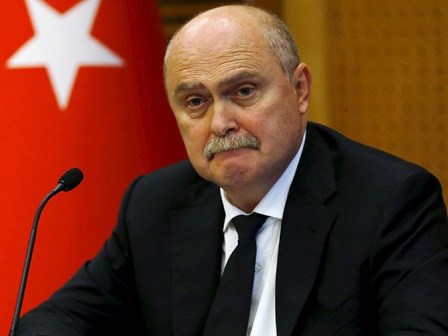
FERIDUN HADI SINIRLIOĞLU (Turkey) said all pillars of the United Nations were facing tremendous challenges. No single State possessed the capacity to take on the challenges alone. The United Nations was in acute need of substantial reform to confront the challenges faced. A primary objective was to increase the effectiveness of peacekeeping operations while prioritizing political solutions. Crisis prevention was essential, as well as preventing the relapse of crises in post‑conflict situations. The Secretary‑General’s “surge in peace diplomacy” initiative and his reform of the prevention pillar had underscored their importance, he said, noting that his country was a co‑chair of the Group of Friends of Mediation. The Council had failed many times to show timely and adequate responses to emerging crises. Often, inaction was the result of the use, or the threat, of veto. That disabled the Council’s effectiveness. He underlined the importance of more Council interaction with non‑Council members and other United Nations bodies. More attention must be payed to tackling the root causes of the multiplier factors of conflicts, including terrorism, climate change, water, and human and drug trafficking.
STEPHEN MAHLABADISHAGO NTSOANE (South Africa) highlighted that the nature of conflict was not the one envisaged by the creators of the United Nations. Indeed, present‑day conflicts largely centred on the internal strife of Member States and transnational threats. Unfortunately, while the world had changed, the Council had largely remained the same. Contemporary challenges had brought divisions within the Council to the forefront, especially among its permanent members. At times, such paralysis had cost human lives, he said, citing the lack of meaningful action on the situation between Israel and Palestine, as well as divisions on Syria. While incremental improvements had been made to the Council’s working methods, such advancements did not obviate the need for comprehensive reform. A more representative Council would allow it to be more effective in dealing with complex, contemporary challenges. He called for a Council with a stronger voice for those closest to crises, one marked by non-discriminatory decision-making and collective, rather than narrow, national security interests.
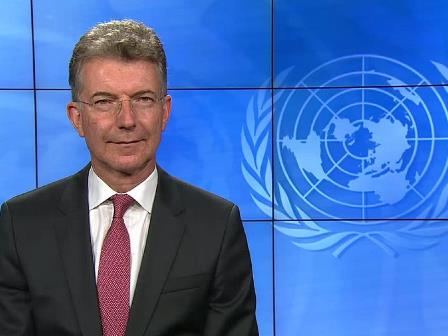
CHRISTOPH HEUSGEN (Germany) said that, in anticipating threats to international peace and security, the Council must have the security implications of climate change on its radar and firmly on its agenda. In addition, it should also include a host of factors, such as the growing interconnectedness in the cyberworld. Lasting peace in such a complex world could not be achieved through military means alone, but in combination with development policy and a strong focus on prevention. For that purpose, resilience of societies must be strengthened; that often started with respect and promotion of human rights. Given abhorrent violations, such as sexual violence used as a tactic of war, the Security Council must do more to integrate human rights into its deliberations. Supporting the Secretary‑General’s reform to make the United Nations work better across institutional boundaries, he called for full use of existing arrangements, such as the advisory role of the Peacebuilding Commission. Describing multisectoral assistance for integrated Sahel initiatives provided by his country, he stressed that in all areas, comprehensive action was needed to respond to current security challenges. His country stood ready to assume its responsibilities in that regard, he pledged.
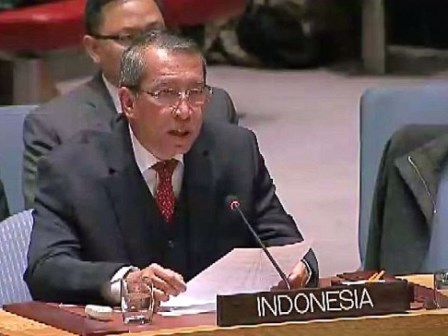
DIAN TRIANSYAH DJANI (Indonesia) pointed out that conflicts had increased threefold in recent years with an unprecedented number of people forcibly displaced. In that regard, he strongly supported the Secretary‑General’s call for a surge in political diplomacy and conflict prevention. Because an inability to tackle the root causes of disputes could cause and sustain conflict, it was encouraging that the United Nations was increasingly examining conflicts in a comprehensive manner. It was vital that the Secretary‑General’s proposals to restructure the Organization’s peace and security pillar succeed so that its engagement with the peace continuum was more effective and nimble. Furthermore, the Council must fully uphold the principles of international law, human rights law and humanitarian law. It must be judicious and not dictated by any particular national perspectives. That commitment was tested by the question of Palestine. The Council’s inaction had had devastating consequences on the ground, making solutions more complex. Moreover, the Council could not solve international peace and security challenges single handedly. Better cooperation was needed with troop‑ and police‑contributing countries in that regard.
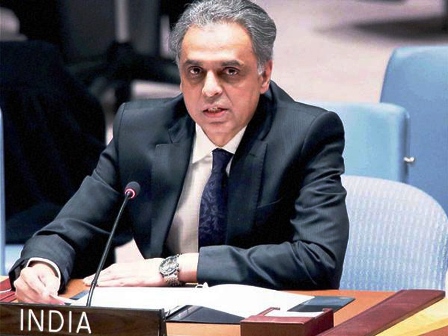
SYED AKBARUDDIN (India) said that a basic reordering of perspectives was needed, emphasizing the need to address sustainable development for all and reduce gross disparities. The Council must put a greater focus on the globalization of terror networks. Even on an issue as serious as designating terrorist individuals and entities, Council‑mandated sanctions committees had failed to make concrete progress. A non‑representative Council, designed long ago to maintain a balance of power between rival States, was unable to handle challenges which had changed beyond recognition over the decades. “An instrument that is no longer considered legitimate and has lost its credibility cannot be our hope for salvation,” he said, adding that “speech acts”, such as the current open debate, would have little impact on billions of people striving to live in peace, safety and security.
ALEX GIACOMELLI DA SILVA (Brazil) said that the interlinkage between security and development was complex and nuanced. Poverty and inequality might exacerbate tensions in some scenarios, but did not necessarily endanger international peace and security. Geopolitical rivalries, militaristic approaches and the unilateral use of force were more serious sources of regional and global insecurity. While discussing the complex dynamics that affect contemporary conflicts, care should be taken to avoid misinterpretations and generalizations. Successful peacekeeping operations demonstrated the potential for a constructive relationship between security and development. The recent experience of the United Nations in Haiti was a positive example, where, for thirteen years, the United Nations Stabilization Mission in Haiti (MINUSTAH) contributed to a more secure and stable environment and assisted in the implementation of hundreds of initiatives that fostered peace and development at the local level.
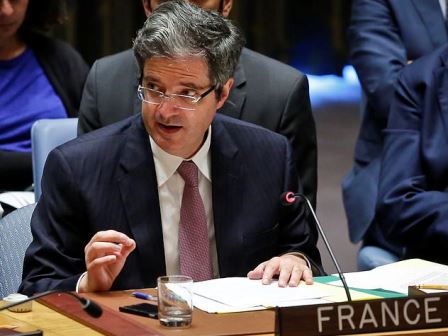
FRANÇOIS DELATTRE (France) affirmed that Council debates in 2017 had illustrated that the complex challenges facing international peace and security must, in the context of globalization, be met by a global response. The United Nations must use all its tools to assist States in an integrated manner that addresses deep‑rooted causes. Terrorism must be faced by addressing all factors — economic, political, cultural and social — along with multilateral security responses and regional arrangements supported by the international community such as the Group of Five for the Sahel (G5 Sahel) joint force. Those responses must be accompanied by long‑term support for development. Climate change, often exacerbating crises, must be met by technological and financial means, starting with the immediate implementation of the Paris Agreement on Climate Change. The Council should also be in close communication with the Office of the United Nations High Commissioner for Human Rights (OHCHR) and other mechanisms so that it could react quickly to grave violations. All challenges, along with ever‑present threats such as nuclear proliferation and inter‑State tensions, must be addressed by every State collectively, along with the mechanisms of the United Nations. Therefore, he voiced his country’s full support for the Secretary‑General’s efforts to increase the effectiveness of the Organization.
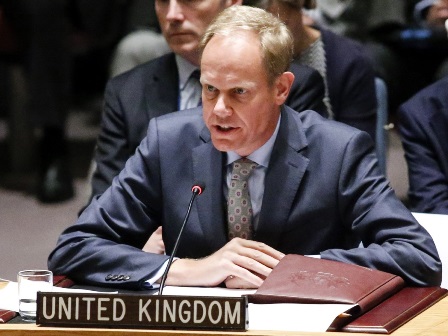
Matthew John Rycroft (United Kingdom) said that not only emerging threats but also conventional threats had been fueled by developing transnational challenges, from internet incitement to enslavement of migrants. All such factors must be confronted at home, in partnership, and multilaterally. For example, at home, his country was tackling illicit financial flows that funded armed groups, terrorists and corruption, through new legislative acts. The United Kingdom was also assisting 13 countries in meeting climate threats to reduce their vulnerability. Multilaterally, it was supporting action of the Security Council, the General Assembly and the Human Rights Council to address the complex and diverse challenges. For those organs to play their full role, the reforms proposed by the Secretary‑General must be supported. That would enable the Organization to more effectively sustain peace, meet the Sustainable Development Goals and build respect for human rights. He pointed out that, during the current open debate, millions of people were experiencing displacement, hunger and conflict as a single reality. Those ills should all be addressed at the same time to achieve a safer world for all.




